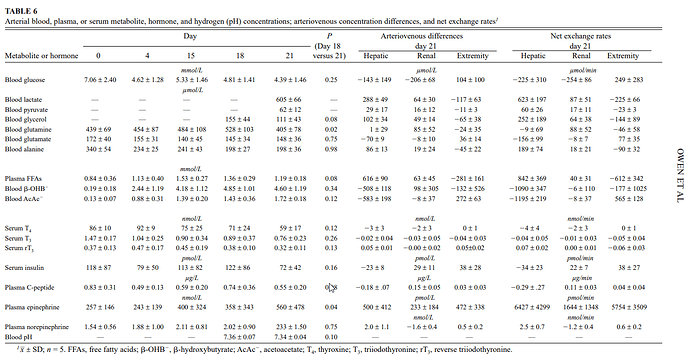I don’t think it’s bad news either, although I’ll admit it goes a little over my head. Besides, the only bad news in science is orthodoxy. I agree with @OldDoug that it sounds like fasting elicits a different kind of insulin resistance than SAD. To wildly oversimply it, my take on the article is that SAD induces insulin resistance due to too much sugar and fasting induces insulin resistance because there is too little sugar. That doesn’t make fasting bad and it certainly doesn’t mean we shouldn’t do it, but it does call into question insulin’s role in the whole thing.
The Obesity Code made an interesting claim about insulin; that it was the primary driver in the retention of fat, because it inhibits lipolysis (fat burning). Here we have a study that reinforces prior studies in the fact that extended fasting induces insulin resistance. One of the symptoms of insulin resistance is rising serum insulin levels. How can fat burning hit it’s zenith as serum insulin levels are increasing if insulin is the key culprit? Something doesn’t totally add up. Here is a study of people water fasting for 21 days; note that the peak insulin level of 122 hits 18 days into the water fast!
My takeaway from this study is that there may be a chapter or two missing from the Obesity Code regarding insulin’s role in obesity. That’s not bad news, but I thought it was interesting enough to share.
BTW, I’ve bought 4 copies of The Obesity Code, I have it on my night stand, and I still think Dr. Jason Fung deserves a nobel prize for writing it. This study just raises interesting questions that might clarify insulins role in lipolysis, obesity, and fasting and it’s a little over my head. No offense is intended, and I’m not claiming that people shouldn’t fast. I do it 3 consecutive days every week and it’s changed my life.



 Here’s his post on the topic, for those who might be interested:
Here’s his post on the topic, for those who might be interested:
